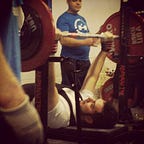30 Days to become a Scholar-Warrior, Day 14 — Talk to a War Vet in Need
Now, there are a tonne of people that are disadvantaged in the world around us. In our local communities alone we have an incredible number of people (some of which chose to be in the positions they are in) but many that are in those positions outside of their choice.
The reason why I brought up a war vet, is because of the situation they’ve been through. You’ve gone from a position of high stakes nad huge death and destruction and now you’re on the streets.
Or even those who seem well off.
We have a great stigma in this world about those suffering from mental stress. Even though we talk so much about how we need to end the stigma. its still VERY prevalent.
I think, that seeing the HUMANITY behind someone no matter what their past is an important aspect of empathy and fitness.
I’m not saying go find someone whose hurt you and let them berate you. That takes a really patient person to bear and still remain open minded.
What I am saying is that by reaching out to this group of people we gain awareness of situations that most of us in today's age are so distant from.
We hear in the news of situations that are happening far off and far between. Even though we get such close coverage. We’re not actually THERE.
We DON’T know what happens to the human psyche through prolonged, excruciating exposure to traumatic experience like war.
Our distance from conflict like that gives us a sense of idealistic-objectivity. At least that’s what we say. But you can argue that it also blcoks us from actually understanding the humanity of people who experience this stuff.
What’s the point of objectivity if we NEVER try and gain a human connection?
It makes this more complicated, yes. But htis is the real world. Thi sis rREAL human history.
It is absolutely situational.
